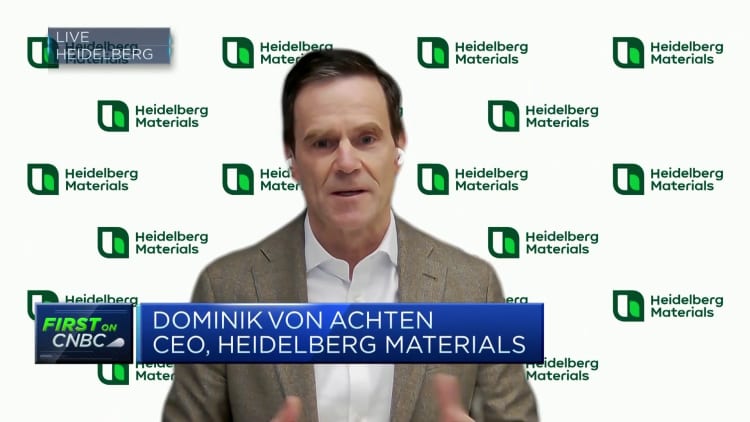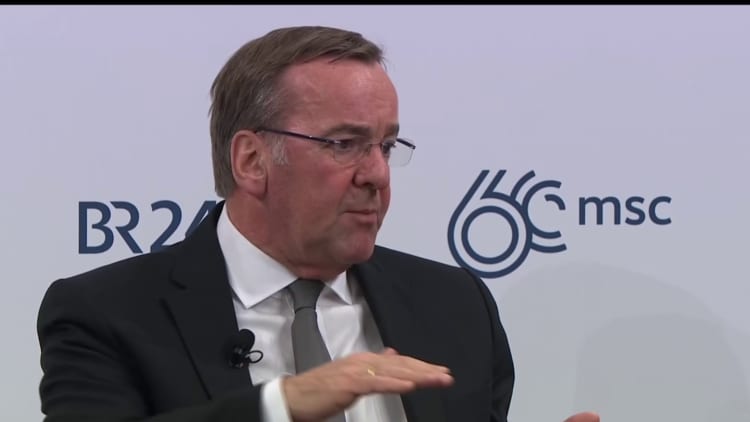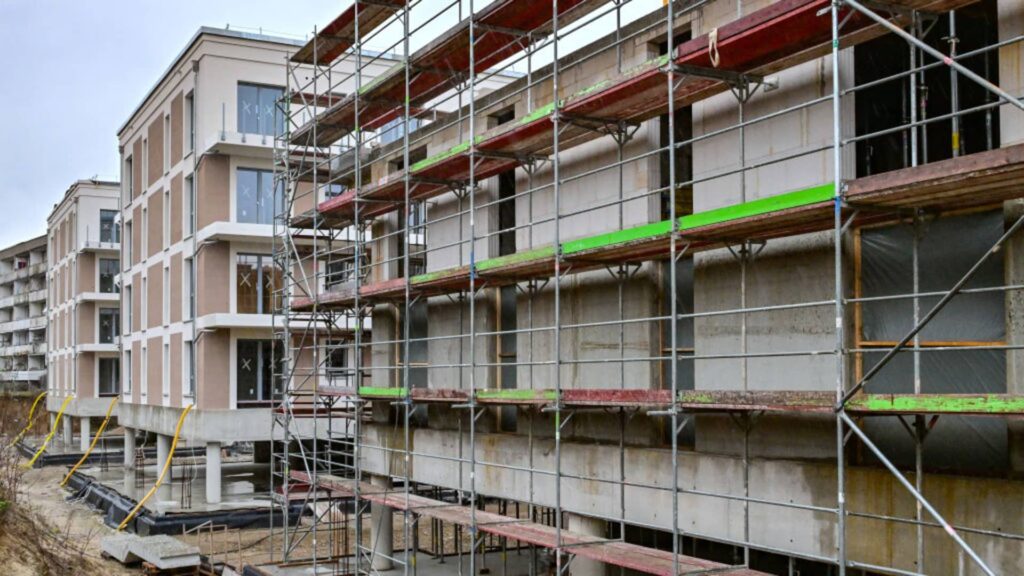A construction site featuring new apartments in newly built residential buildings.
Patrick Bliol | Image Alliance | Getty Images
Germany's home building sector has gone from bad to worse in recent months.
The economic data paints a worrying picture, and industry leaders appear to be feeling uneasy.
“The homebuilding sector is experiencing somewhat of a crisis of confidence,” Dominik von Achten, president of German building materials company Heidelberg Materials, told CNBC on Thursday.
“There are too many things that have gone in the wrong direction,” he said, adding that the company's business volumes had declined significantly in Germany.
In January, current sentiment and expectations for the German residential construction sector fell to an all-time low, according to data from the Ifo Institute for Economic Research. The business climate reading fell to minus 59 points, while expectations fell to minus 68.9 points during the month.
“The outlook for the coming months is bleak,” Klaus Vollrabe, head of surveys at Ifo, said in a press release at the time.

Meanwhile, the Hamburg Commercial Bank's January Construction PMI survey in Germany also fell to the lowest reading on record at 36.3 – after December's reading was also the lowest on record. PMI readings below 50 indicate contraction, and the lower the number to zero, the greater the contraction.
The PMI report stated, “Among the broad construction categories monitored by the survey, housing activity remained the worst performer, showing a rate of decline that was among the fastest on record.”
This issue also affected the German economy in general.
German Economy and Climate Minister Robert Habeck said on Wednesday that the government has lowered its 2024 GDP growth forecast to 0.2% from the previous estimate of 1.3%. Habek pointed to high interest rates as a major challenge for the economy, explaining that this led to a decline in investments, especially in the construction sector.
Light at the end of the tunnel?
Ifo data showed that the number of companies reporting order cancellations and order shortages fell slightly in January, compared to December. Despite this, 52.5% of companies said that not enough orders had been submitted, which Wohlrabe said was affecting the sector.
He said: “It is too early to talk about a trend reversal in residential construction, because the difficult conditions have not changed at all.” “High interest rates and construction costs are not making things easier for builders.”
However, Heidelberg Materials' von Achten suggested there could be at least some relief on the horizon, saying there could be good news on the interest rates front.

“I'm sure inflation is already falling now in Germany, and perhaps in the European Central Bank [European Central Bank] “They actually cut interest rates earlier than we all thought, so let's wait and see, and if that happens, it's clear that confidence will return as well,” he said.
Even if interest rate cuts are a slow process, von Achten says that once people “see the tipping point” confidence should return.
Speaking to the German parliament about the economic outlook on Thursday, Habeck said the government expects inflation to continue to decline and return to the target level of 2% in 2025.
The European Central Bank said at its last meeting in January that discussing interest rate cuts was “premature,” even as progress was made on inflation. While the exact timeline for rate cuts remains unclear, markets are broadly pricing in the first cut to occur in June, according to LSEG data. Â Â
